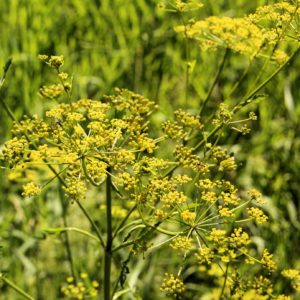They drive through the town, the cold, the snow and the dark, through the still Sunday night of lights-out-early-to-bed, across railway tracks by the hard-rock lake-shore, to the old red machining plant, to the dulled shuffling under the “Employees Only” sign, grunted greetings and the punch clock chatter – 11:46 PM SUN – sips of coffee: the men on graveyard sit without words before working.
Fifty-seven men, singly, in twos and threes, move from the lunch room past the rows of faded green lockers, into the shop oddly quiet and cool; alone the oddness of Sunday night hanging, alone the tired freedom of the graveyard, with no bosses, hangs.
Past the milling machines: the Clevelands, the Cincinnaties, the Toms, the Indumas, already with stainless cutters rotating and white coolant pouring, all ready silent men with rubber aprons lean over tables by the rows of lathes: the Man-au-Cycles, the Herberts, the Harrisons, the Hindustans, with vicious turrets stocked with centers and small drill-chunks and bits, the Standard-Moderns, the Acmes, a Colchester, and the pair of Warner-Swasey boring machines; levers and buttons and handles jut and bend and turn, and turn.
The noise builds, the snapping of tool boxes and the clunking of switches, gears thumping, rolling, clutches let out, oil pumps pumping, the squawk of a dull carbide bit left on Friday’s shift, clutches tossed in, chucks rotating in splashing oil, air pressure tail-stocks thudding into place, the whir of the rod straightener, high speed steel on brass, carbide on mild steel, turrets crawling like green spiders, idler-shafts and worm-gears rolling: finally, the great presses crash and pound through the floors and walls and skulls, the hot millers and grinders scream high over growling gearboxes and clattering chuck brakes.
The night moves on: finished pieces lining up on smooth metal tables; at each machine a man standing, watching, one tool box open, faded pin-ups taped inside the lid; two other boxes – the shift-partners’ – closed; cigarettes pulled from red du Maurier packs or blue and white Players; and on heavy brown paper towels lie tools in rows: the micrometers, the Verniers, the calipers, straight steel rules, honing stones, brass hammers, box end wrenches and Allen keys, go and no-go bore and thread gauges, all slick with oil, boxes of carbide bits, and perched to one side, a pile of clean paper towels at the ready.
The minutes, the hours, the cold industrial night , the pushing of black-knobbed handles, the lifting of levers, beginning the cut, solitary beings stepping back, here laying out a perfect blue smoke ring; there thinking of wives and children at home asleep; some dreaming of truck-driving, no bosses, riding high in big Peterbilts, road kings, out of this place, no metal slivers under oily skin, no ringing in the ears; others imagining the worse- off bastards on graveyard at INCO, Texas-Gulf, the Sherman Mine in Temagami and Macassa in Kirkland Lake, using the stuff they make, burrowing on down into the earth, ever closer to hell itself, a mile and more of rock above their heads; some thinking of women with long legs all the way up to there; some recalling the sour smell of dingy beer parlors and the soothing trays of yellow draft ale, and some wondering if they can make it through without sleep. Hands move, disengaging, shutting off and lifting, fingers feeling for unseen flaws, measuring for tolerance, honing, caressing the metal as tenderly as the arched back of a lover, beginning the cycle again and again.
Now and then behind silent eyes a curse to the bosses, to the banty roosters in blue suits, strutting on the day-shift, stop-watches in hand, calculating, raising the count, demanding a perfect finish, who do not work at night; the cutting tool chatters and the piece is rough, a calculation scribbled on a scratch pad, then honing of the cutting tool’s trailing edge and the next nine are perfect, but the tenth is scratchy and tight and goes into the re-work box.
At the four o’clock break the talk is slow, half-eaten sandwiches lie by plaid thermoses of coffee, there is talk about the coming conversion to metric; Guillaume says it’s more scientific, Randy, was a cop, an OPP, quit after he got shot in the face on a domestic, says, yea, but it’s the goddamn people who measure in feet and inches who put a fuckin’ man on the moon, Jorma says never the fuck mind, the government is always fuckin’ with you. Some go out, the night air burning lungs, forty-two below, to start old brown cars that will not start if left all night, motor oil as thick a sludge; a few play cards and a few sleep on hard wooden benches, ahead on their count or too tired to care.
Then back to the machines, parts worn shiny from a million hand grips and thumb touches, the shift leader strolling around, checking a piece or two, hearing the complaints – damn bearing is goin’, listen to the bugger, won’t last the night, feel how hot that goddamn cover is, I need my count, I ain’t fixin’ it, not on gravefuckinyard, no fuckin’ way – waves of hot air fluttering the hanging blueprints as high above brand new drill rods are hoisted from the furnace, long drips of two thousand degree red-yellow light.
Somehow the night passes. At six, in town some people are rising, most are still sleeping, the machines are still turning,; the first-aid man shuts down as the loudspeakers belch his name, and runs to the first-aid room, where two men wait, one close to fainting, with three fingers crushed, bloody and oily, the forefinger missing – Fuckin’ counts too high, he says, I forgot what the hell I was doing – and he passes out; the first-aid man stops the blood, bandages him up, calls the ambulance, and then runs out to the shop floor to scoop up the finger, maybe they can sew it back on. Goddamn that fuckin’ small press, how many times, he says to nobody. And outside, down by the lake-shore, brown fluid seeps from the big jutting pipe, there’s a bad smell, and sometimes in summer people see dead perch and gulls on the rocks and wonder.
And somehow the night passes.
Now the punch clock crashes – 8:01 AM MON – ringing in ears, the dull, gray snow-laden sky too bright for graveyard eyes; the old Ford groans in the cold, it’s the last winter for this heap; the frozen rubber tires squeaking on dry snow; driving home smelling of heavy oil, some going to children and wives awake – Don’ kiss me hon, the oil, sorry, I gotta go to work, make sure Tommy eats she says, have a nice soaking bath later Sweetie, I got a special treat for ya after the kids go to bed if ya know what I mean, ha, ha – some go home and fry up some eggs easy-over, bacon smell turning the stomach slightly; some go to beds with wives groggy and tempting; some to beds with lonesome smell lingering of already-gone wives and girlfriends; some go home to the brown bottle, and some go home to nothing – nothing at all.
Next week it’s days, the week after that it’s evenings, then graveyard again and then it’s days.
And now and then there’s a curse to the bosses, the their natty checked ties and their stink of after-shave, the goddamned suits who wouldn’t give a man one more nickel for an hour of his life, who roll in at quarter to nine, whose black Buicks are new and shiny and always start, the bosses with their bottles of pricey whiskey in desk drawers, who leave at quarter to four in the afternoon, who do not work at night, who do not work at night.
– original version first published in the Northern Ontario Anthology, Highway Bookshop Publishers, Cobalt, Ontario, 1977. Copyright © Peter Scott Cameron, 2020.
 Please see my photography site at peterscottcameron.com.
Please see my photography site at peterscottcameron.com. Please see my photography site at: www.peterscottcameron.com
Please see my photography site at: www.peterscottcameron.com
 Pastinaca Sativa
Pastinaca Sativa